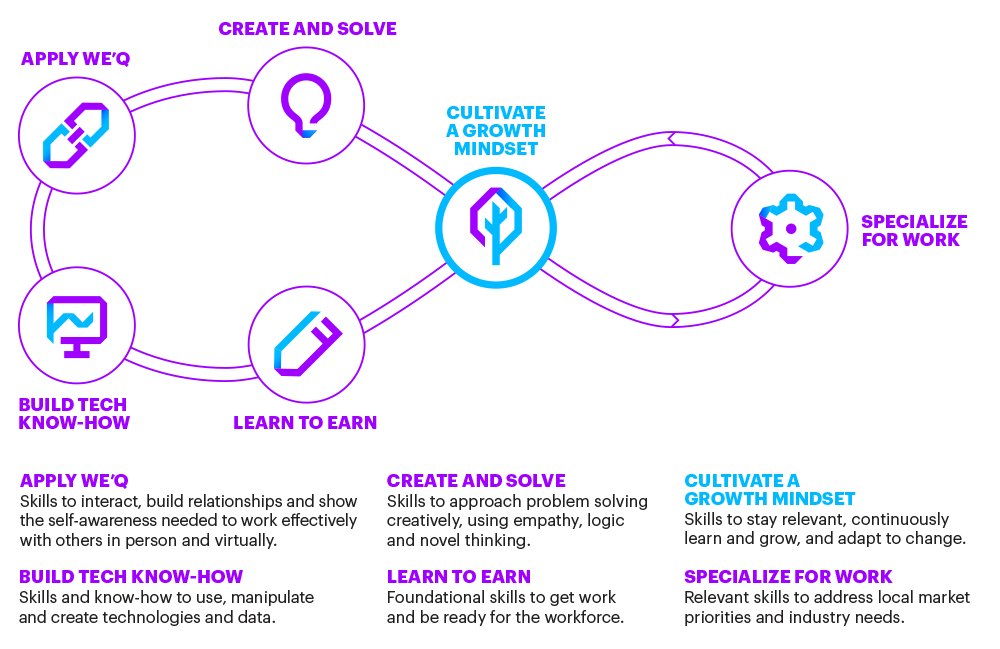It’s time to reimagine workforce development
Accenture is delighted to share our Corporate Citizenship’s latest research:
New Skills Now: Inclusion in the Digital Economy
Digital innovations are transforming the world of work, we are beginning to see the effects of the unprecedented pace and scale of technological change and flows of information disrupting labour markets and fundamentally altering the future of work. This period of rapid technological acceleration brings opportunities as well as challenges and, unlike prior technological shifts, which primarily affected low-skilled workers, today’s changes are impacting the entire global workforce.
While the extent of the impact on labour markets is still to be determined, what remains clear is that automation may disproportionately affect individuals who are already facing hardship. Populations that are vulnerable or marginalised today could face a ‘double disadvantage’ in the future, due to a lack of awareness, opportunity or means to adapt to these changes. Without a large-scale reskilling effort, these individuals are at greater risk of technological displacement and unemployment
These shifts require an urgent reimagining of workforce development programs, as well as a readjustment of skills. Our research has identified six #NewSkillsNow skills required for families to thrive in the digital economy and that together create a strong foundation for job seekers and entrepreneurs for inclusion in the digital economy.
We hope to start a conversation with practitioners and funders who want to work together to create a more inclusive future where all members of society can participate in and benefit from the digital economy. Join the conversation and help us build #NewSkillsNow.
Read the full report here: https://accntu.re/2EQo5BC
1 World Economic Forum, The Future of Jobs, Chapter 1 – The Future of Jobs and Skills, 2016.
2 OECD, The Risk of Automation for Jobs in OECD Countries, 2016.








